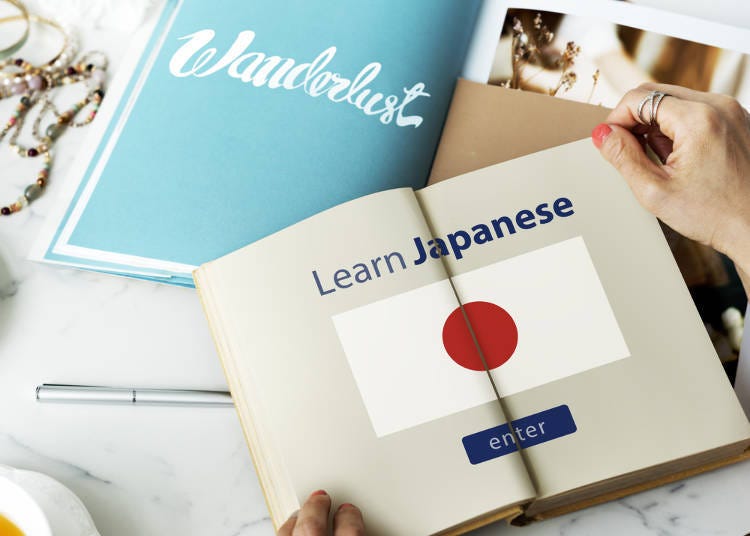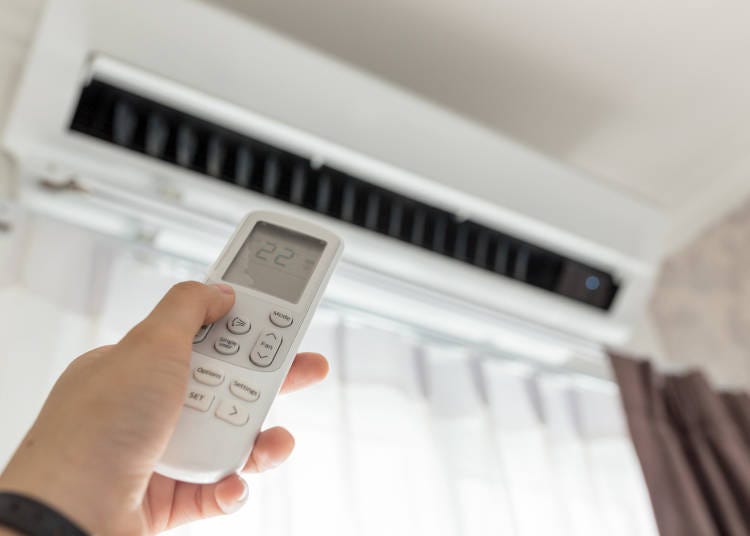
Many of the widely used Katakana phrases in Japanese now are undeniably influenced by the English language. However, not all of these words are true English; some belong to the category of 'wasei-eigo,' which refers to a fusion of Japanese and English. These unique words often lead to confusion among foreign visitors.
So, what are some commonly used Japanese English words in Japan, and what do they truly signify? Let's delve into the fascinating world of Japanese English!
What, Say “Aye Go”? (Wasei-Eigo)

Wasei-eigo refers to unique Japanese words that have English origins. Many of these words are written in katakana, such as renji (microwave oven), consento (electrical outlet), and baikingu (sometimes spelled 'Viking') (buffet).
The interesting aspect of these words is that most Japanese people believe them to be genuine English words, as they bear similarities to English or certain abbreviations. While Japanese individuals have no difficulty using these words among themselves, foreigners often find themselves puzzled when Japanese speakers communicate with them using such terms.
So, which specific words cause these communication challenges? We reached out to some foreigners to learn more about their experiences with Japanese English.
PET Bottles? Ah, Plastic Bottles!

“We don’t call them PET bottles in America. I didn’t understand it at first, but eventually, I realized they were referring to plastic bottles.” (American, Female, 30)
Plastic bottles are extensively utilized in Japan. The recycling label on these bottles bears the term "PET," which is responsible for their name. Although it may SOUND English, it is, in fact, not. PET is actually an acronym for polyethylene terephthalate, and while the term exists in English, it is often pronounced as an initialism. Consequently, most foreigners associate the phrase with a bottle as a pet.
“Also, ‘vinyl’ (bini-ru) is the material used for plastic bags, right? Why did they have to use such a complicated word when they could simply call it a plastic bag? It's quite peculiar.”
Another Japanese English term widely employed in Japan. Interestingly, the Japanese do not perceive the word as particularly intricate. Some of them are unaware that "vinyl" refers to the material of the bag.
Getting something for free? Consider it a “Service”

“In Japan, when they say ‘sābisu shimasu,’ does it mean they'll do it for you free of charge, right? I was quite surprised when I first heard it because that's definitely not the case in English.” (American, Male, 30)
“The word ‘service’ is also used in China. We Chinese really appreciate free stuff, so we're totally fine with the Japanese version of the word (laughs). However, in English, the word simply means to offer something, so it's important to add the word ‘free’ if you're using it.” (Chinese, Male, 30)
In English, the term "service" itself does not imply "free of charge." However, in Japan, the Japanese English phrase often carries the nuance of receiving something for free. This leads to frequent misunderstandings among Japanese people, as they tend to assume they are receiving something without cost whenever they hear the word "service."
Paso-kon? Rimo-kon? The Ubiquity of Abbreviated Katakana Words

“I often get confused due to how many commonly used Japanese words are just shortened versions of English words like ‘Pasokon’, ‘Rimokon’, or ‘Eakon’. There are some Japanese who believe them to be actual English words too.” (Spanish, Male, 40)
Originally, the words “Pasokon”, “Rimokon” and “Eakon” referred to “personal computer”, “remote controller” and “air conditioner” respectively. In Japan, words are often abbreviated for ease of communication. Some examples include fakkusu, akuseru, and apāto. The actual words, however, are “facsimile”, “accelerator”, and “apartment”. If you one day come across a word that you really don’t understand, but it feels like a shortened version of a word, try thinking out of the box and decipher the code!
Making up words for Make-up

“Cosmetics in Japan are called ‘keshōhin’ in Japan, but it’s really cute how they shorten so many of the words like ‘rippu’ from lip balm!” (Indonesian, Female, 20)
Cosmetics in Japan are often used without much thought, but their namesake in Japan, “cosume”, is really just the front syllables of the original word. While Japanese people know the original word as “lip cream”, the actual original word is “lip balm”.
For words like “blush”, Japanese call it “cheek” in reference to the area you apply it on. Even though words like “eyebrow” and “concealer” are pretty much the same both in Japanese and English, why only “blush” was changed is a mystery even to the people here.
Actually German, albeit sounding like English: Arbeit

“Once, I got stuck in a conversation with a Japanese when they used the word ‘arubaito’. The word ‘Arbeit’ means a proper full-time job in German, but here in Japan it just refers to a ‘mini job’.” (German, Male, 30)
“Arubaito” is falls completely under wasei-eigo, with the original being the German word “Arbeit”. The word in Japan means the same as the English word “part-time”, and while the image of “part-time” is usually a short period of work, in Japan part-time jobs even include those which require working 5 days a week, 8 hours a day.
Other than “part-time work”, Japan has other forms of employment including “pāto”, contract employee, and regular employee. However, the classification is not really strict, and often changes depending on the wages, working conditions, and even the context in which you’re using the word.
Even if it sounds English, remember it could be Japanese English!

Japanese normally think of foreign words when they encounter katakana, so many are mistaken about the English meaning of the words, to say nothing of the intonation. English-speaking foreigners are thus prone to confusion when faced with these phrases.
Nevertheless, these words are essentially Japanese and it would be wise to treat it as such. As a bonus, you could also kindly let the Japanese speaker know that the word isn’t English, but actually wasei-eigo.
- Area
- Category
*Prices and options mentioned are subject to change.
*Unless stated otherwise, all prices include tax.
Popular Tours & Activitiess
-

Farewell, Heavy Suitcases! Keisei Ueno’s New Service Makes Your Last Day in Tokyo Totally Hands-Free
by: Guest Contributor
-

Top 3 OSHI MAPs for the Best Matcha and Sweets in Tokyo
by: Guest Contributor
-

To the Holy Land of Kawaii! Odakyu Tama Center Station Is Becoming a Dreamy Sanrio Wonderland
by: Guest Contributor
-
Ad

What Makes Japanese Yakiniku So Darn Good? Guide to Cuts, Heat, and Wagyu Know-How
-

A New Tokyo Landmark Is Coming in 2026, and It's Built for Modern Travelers
by: Guest Contributor
-

Where to Buy a Japanese Kitchen Knife? Why Travelers Choose MUSASHI JAPAN's 14 Stores in Tokyo, Kyoto, and Nara
by: Guest Contributor
-

Under The Tracks: Introducing 5 of Tokyo's Hot New Trendy Spots!
-

'What's in Shibuya?' 5 Ways the Shibuya Area Is Way Different From What Tourists Expected
-

JR Edition: Visit all of Tokyo in one Day with the Tokyo Metropolitan District Pass!
-

6 Fun Things to Do at Tokyo's World-Famous Tsukiji Outer Market!
-

'It Might Look Tasty But...' The Weird Ways Japanese Sweets Surprised Foreigners
-

What to Pack for Japan: 8 Essential Things for a Hassle-Free Trip
- #best ramen tokyo
- #what to buy in ameyoko
- #what to bring to japan
- #new years in tokyo
- #best izakaya shinjuku
- #things to do tokyo
- #japanese nail trends
- #what to do in odaiba
- #onsen tattoo friendly tokyo
- #daiso
- #best sushi ginza
- #japanese convenience store snacks
- #best yakiniku shibuya
- #japanese fashion culture
- #best japanese soft drinks


















